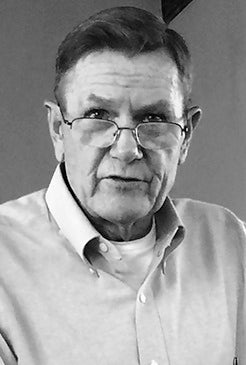Ricky Harpole column
Published 12:00 am Tuesday, September 20, 2011

We were sitting around the campfire about a month ago down at Moccasin Bend for a last night of trotlining, reminiscing about the good ole days of yesteryear and the things that we once took for granted that are now extinct, one example being the general practitioner country doctor.
It seemed that every township big enough to have a post office had a doctor’s office, and a pharmacy to go with it. There weren’t a lot of so-called specialists cluttering up the geography in those places because those GPs knew enough about every thing that was likely to ail you, so as to render the specialists obsolete or mostly uncalled for.
One reason for this was because most of the country doctors were older men and women of the profession and had seen just about everything there was to see and could recognize and provide successful treatment.
They were by anyone’s standards, on the whole, excellent diagnosticians.
They were also a pretty colorful collection of individuals.
My first wife’s family physician was an elderly lady with a practice in Senatobia. At the end of every visit she would recommend you drink at least one glass of buttermilk per day. She was well regarded as a healer and there was, I’m sure, a sound medical reason for her unorthodox prescription. I just don’t know why (after all, I’m not a doctor).
Of old Dr. J.D. House, who had a practice at Sledge, you could be assured of two things. One was a Tootsie Pop sucker and the other was a humongus syringe loaded to the gills with penicillin for your backside.
He’d graduated from medical school in Knoxville, Tenn. class of 1903 and throughout half of his years in practice he’d cured a better than average number of pneumonia patients without benefit of the wonder drug which didn’t become available until the 1940s. Then he really cured ‘em.
Then there was Dr. M.B. Lynch of Marks. In spite of the connotation of his last name he was a humanitarian who had his own interpretation of the Hippocratic oath that all physicians take (whether they are liars or not). He was the epitome of the country doctor of yore.
In addition to his common, everyday chores of pediatric duties, he dealt with crotchety old men and hypochondriac women (and vice versa), went fishing or hunting on a lackadaisical basis, and supervised and maintained a small “birthing clinic” in Marks.
Dr. Lynch would deliver a child for a less than nominal fee of about $50 well into the 1970s, and had a damn good record of live birth delivery. He was a daisy, and about as colorful as they came.
He’d probably reset more bones than any 3 anthropologists working for the Smithsonian, pulled more stitches than a french seamstress and humorized the situations enough to take your mind off the procedures at hand (or foot) and make you laugh.
He’d been a front line combat Army surgeon straight out of med school and developed a most amazing vocabulary of adjectives seldom heard in church, (but sometimes in the churchyard during election year) which he used to describe your illness or “damfool caused injury.”
It was a pleasant distraction from pain just to imagine what he’d say next. It was almost a pleasure to be almost dead to get to hear what he had to say about your deprecated condition while you waited on the sweet melody of a harp. (or a newborn’s wail).
About his colorful aura, I never saw him in his office without a reflector device on his noggin, a stethoscope hooked around his neck and a cigar in his mouth. That cigar was invariably about two inches long.
Year after year, I never smelled smoke during my many visits and I suspected it to be a stage prop, just like the colorful language he sometimes used. After all, his opening line in the examination room was often as not “Well, young Harpole, what the hell have you done to yourself this time?”
Threatened to put a tourniquet on my neck once, when my ear wouldn’t stop bleeding. Daddy said years later it would have been the best treatment but thankfully (for me) daddy didn’t have a license to practice in Dr. Lynch’s ‘hood.
I can’t remember the name of the lady physician in Senatobia, but she, as well as Doctors House and Lynch, carried a little black bag and made house calls in the days before any rural families and not all post offices even had telephones.
For better or worse they kept so many of us alive and in mischief (oops I meant good health) for many years.
Feeling better already,
Ricky Harpole
(Contact Harpole at www.facebook.com/harpolive or www.colespointrecords.com)





